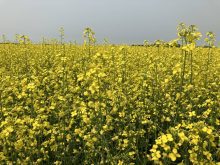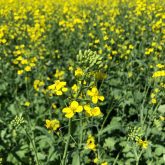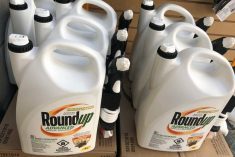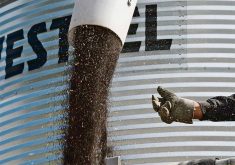Value-added processing has created a stronger canola industry in Canada — and there’s nothing to say it couldn’t work in other commodities as well.
“We’ve seen a lot of infrastructure put together in Western Canada to lengthen our value chain here domestically,” said Lee Markert, chair of the Alberta Canola Producers Commission.
“For a long time, we exported a lot of seed — and we still do — but now, it’s to the point where we do a lot of value added here in Canada and move different types of products from the same commodity to the rest of the world.”
And Markert would like to see that happen to other commodities.
“It’s good for our gross national product. We’re creating more jobs at home. We’re adding more value and bringing more money back into the country,” he said.
Read Also

Farming Smarter receives financial boost from Alberta government for potato research
Farming Smarter near Lethbridge got a boost to its research equipment, thanks to the Alberta government’s increase in funding for research associations.
“I think that will be a crucial part of whatever government gets into power.”
And because exports are so crucial to Canada’s ag sector, Ottawa needs to ensure it has the tools to build that export business.
“We have the land base and resources to provide for the rest of the world, and we really require these customers from around the world to make ourselves sustainable. I would hate to see that lost in the process.”
And to meet that demand, “reliable, consistent” transportation of canola and canola products is important, he said.
“Because so much of what we produce is exported, we have to have reliable ways of getting it to the coast.”
Rail transport isn’t an issue that only affects farmers, added Markert.
“It’s not just agriculture that relies so heavily on transportation. It’s all production sectors across the country,” he said. “Canada is an export nation, and our ability to get our products to port is crucial to our gross domestic product.”
And the next federal government shouldn’t shelve the review of grain transportation issues — even if this year’s crop is smaller than it was when the crisis hit in 2013.
“It’s easy for a lot of that progress to get eroded if we’re not talking about it, regardless of whether there’s a lot of grain to move.”
















